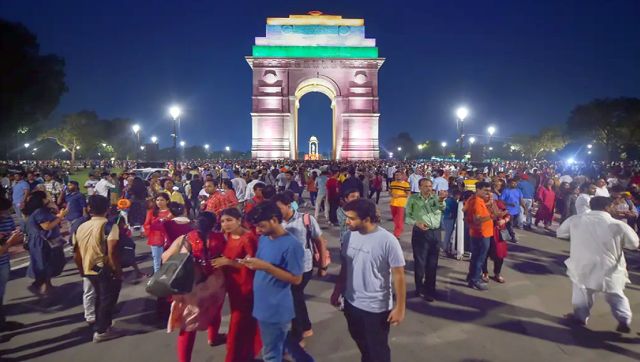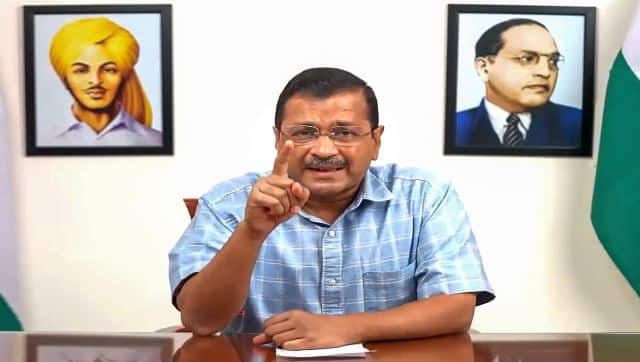The ‘ayes’ outvoted the nays on Monday night in the Rajya Sabha as the contentious Delhi services bill, formally known as the Government of National Capital Territory of Delhi (Amendment) Bill, was put to vote. Amid the Opposition’s din, 131 MPs voted in favour of it and 102 opposed it after Home Minister Amit Shah introduced the bill in the Upper House.
Interestingly, the discussion on the Bill even saw former Prime Minister Manmohan Singh being brought in on a wheelchair to the Rajya Sabha.
The bill, which was passed by the Lok Sabha last week, replaces an ordinance promulgated by the Centre for handling the transfers and postings of officials in the Delhi government. Home Minister Amit Shah, defending the bill, even said in the Upper House that the legislation was introduced to safeguard the rights of the people and not to usurp power, as charged by the Aam Aadmi Party (AAP).
During the debate, he also asserted that it did not violate any judgment passed by the Supreme Court of India. “The Delhi services Bill in no way violates the Supreme Court judgment. It is aimed at effective, corruption-free governance in the national capital,” Shah said.
The AAP, on the other hand, termed the bill “as misuse of power” and the party chief, Arvind Kejriwal called Monday a “black day of democracy” after the bill was passed. “This law is similar to the Government of India Act brought by the British in 1935. The people of Delhi will elect their government, but government will have no powers to function,” he said.
The bill enslaves the people of Delhi, it is a “black day for Indian democracy,” he added.
What exactly does the bill entail? Now passed, how will it change how Delhi functions? Let’s take a closer look.
The genesis of the bill
To understand what exactly is the bill and how it will change Delhi’s administration, one must first go back and see why such legislation was required.
Always fighting with the Lieutenant Governor (L-G), who is nominated by the Centre, the AAP went to court on the matter and in May 2023, a five-judge constitution bench, headed by Chief Justice of India DY Chandrachud, ruled that the legislature has control over bureaucrats in administration of services, except in areas outside the legislative powers of the National Capital Territory (NCT). There are three areas outside the control of Delhi government: public order, police and land.
The CJI had said, “The legislative and executive power of the Government of National Capital Territory of Delhi (GNCTD) over entry 41 shall not extend over to services related to public order, police and land. However, legislative and executive power over services such as IAS or joint cadre services, which are relevant for the for the implementation for the policies and the vision of NCTD in terms of day to day administration of the region shall lie with the NCTD.”
However, on 19 May, the Centre introduced an ordinance to override the top court’s order, giving more authority to the Lieutenant Governor (L-G) in matters of appointments and transfers of bureaucrats.
When introducing the bill, its statement of reasons states that it is being brought because as the capital, Delhi has a unique status. “Delhi being the capital of India has a unique status and certain distinguished features and there is need to promote the national interests without compromising the aspirations of the residents of Delhi. Article 1 of the Constitution defines the territory of India, comprising of States and Union territories and article 1 read with article 239 provides that the Union territories are to be governed solely by the President.”

The fine print of the Bill
The Delhi services Bill states that the inquiries and suspensions of the officials of the national capital will be under the Centre’s control. The Lieutenant Governor will be empowered to exercise his sole discretion on various matters, which will include the National Capital Civil Services Authority’s recommendations and the prorogation, summoning, and dissolution of the Delhi Legislative Assembly.
It is important to note here that the Delhi services Bill is different from the ordinance that was passed earlier by the Centre. There are three significant changes:
— Removal of Section 3A
The bill removes a provision in the ordinance that previously prevented the Delhi Assembly from making laws concerning ‘State Public Services and State Public Service Commission’. Section 3A, which was added through an ordinance, said that the Delhi Assembly won’t have the power to make laws related to services. This has now been taken out of the bill. Instead, the bill now concentrates on Article 239AA, which empowers the Centre to establish the National Capital Civil Service Authority (NCCSA).
— No Annual Report needed by NCCSA
The bill establishes the National Capital Civil Services Authority (NCCSA) which will make recommendations to the L-G, who is appointed by the Union government. The NCCSA will include the chief minister who will serve as the chairperson, the principal home secretary of Delhi, who will serve as the member secretary and the chief secretary of Delhi, who will serve as member.
However, the bill has added that the NCCSA will no longer be required to submit an annual report to Parliament and the Delhi Assembly, removing the obligation to present the report before these legislative bodies.
— Modifications in appointments
The now-approved legislation states that the power to appoint authorities, boards, commissions, statutory bodies, or office bearers will be with the President for any law of Parliament, and with the L-G for any law of Delhi legislature. Earlier, the ordinance had stated that the power to appoint authorities, boards, commissions, statutory bodies, or office bearers will lie with the President under any law.
Changing power dynamics
With the L-G being granted more power, the dynamics of the administration in the Capital is bound to shift. With the passage of the bill, the LG now possesses greater authority over the bureaucracy, including the ability to appoint, transfer, and post officers without requiring the consent or input of the Delhi government.
This could perhaps hinder the smooth implementation of policies by the AAP government in the present and other governments in the future. This is because the government will need the L-G’s approval for important bureaucratic decisions. Furthermore, it paves the way for more tenuous relations between the L-G and the Delhi government, as both will fight for more power in controlling the administration.

Opposition and support
The AAP, who has been in power in Delhi, has vehemently opposed the Bill from the beginning and claimed that the passage of the Bill was a ‘black day’ for democracy.
Following the bill being passed, AAP minister Atishi said her party and the people in the national capital will continue its fight against the BJP. She was quoted by ANI as saying, “There are many in the country who talk about the absence of democracy in Pakistan, wondering how Bills are passed by their Parliament without any debate or consent.
“Today Prime Minister Modi has made the situation in India worse than in Pakistan. This is very unfortunate. We, along with the people of Delhi, will continue our fight against the BJP.”
The Congress, who has expressed its support with the AAP on the matter, also has termed the legislation as “unconstitutional”. Former Home Minister P Chidambaram said on Monday that Delhi has 3.17 crore people who elect a government to govern them and take decisions on their behalf. “We are breaking the Constitutional machinery by passing this bill. We are breaking the Constitutional machinery envisaged.”
The BJP, on the other hand, hailed the passage of the Delhi services Bill in Parliament and said it will end the “anarchist aadmi party’s heinous misuse of power” to intimidate government servants for their “corrupt objectives”.
With inputs from agencies
from Firstpost India Latest News https://ift.tt/Og53avC


0 Comments